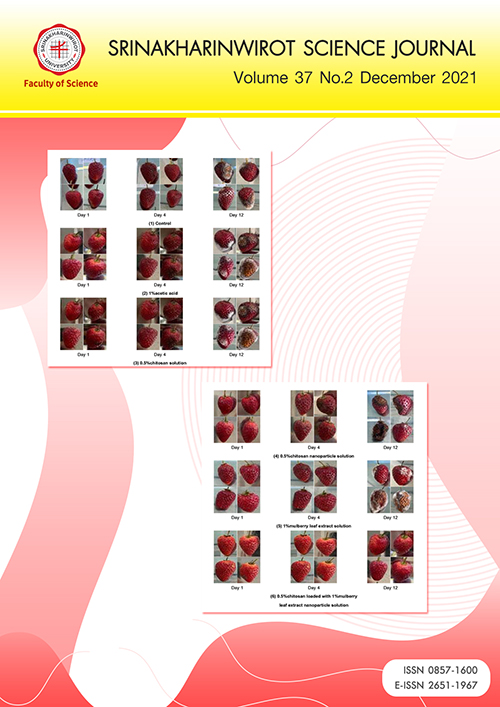Chemical Profiling and in vitro Testing for PCSK9 Inhibition of Coffee Cascara Extract
Keywords:
Cholesterol, Coffee cascara, LDLR, PCSK9, NMRAbstract
Coffee cascara is a by-product generated from coffee processing. It has been discarded as an agricultural waste. In order to reduce the environmental problems caused by coffee processing, this study aimed to investigate the effect of fresh coffee cascara extract (CCE) on the inhibition of PCSK9 which is an enzyme that can increase low-density plasma lipoprotein (LDL) cholesterol by destructing LDL receptor. Moreover, the CCE chemical profile was identified by the thin-layer chromatography (TLC) technique together with diffusion-ordered NMR spectroscopy (DOSY). The chemical profile analysis results showed that trigonelline, caffeine, and chlorogenic acid were present in CCE, and its PCSK9 inhibitory activity screening showed that CCE at concentrations of 0.25 and 0.50 mg/mL reduced the amount of PCSK9 by 72 and 78%, respectively. These results revealed that coffee cascara provides novel applications in the nutraceutical industry.Downloads
Download data is not yet available.
Downloads
Published
2021-12-28
How to Cite
Dolsophon, K., Samosorn, S., Sungwienwong, I., Apiratikul, N., Watanapokasin, R., Poorahong, W., & Krajangsang, S. (2021). Chemical Profiling and in vitro Testing for PCSK9 Inhibition of Coffee Cascara Extract. Science Essence Journal, 37(2), 93–101. Retrieved from https://ejournals.swu.ac.th/index.php/sej/article/view/14030
Issue
Section
Research Article








